The concept of colon cleansing has been around for centuries, yet it remains one of the most intriguing and often misunderstood practices in the quest for optimal health. This guide aims to demystify the process, offering a clear, step-by-step approach to effectively and safely cleanse your colon, improving your digestive health and overall well-being.
Table of Contents
Understanding Colon Cleansing
Why Colon Cleansing?
The primary rationale behind colon cleansing is to remove the accumulated waste that can adhere to the colon walls and potentially enter the bloodstream, leading to a variety of health issues. These issues include bloating, gas, weight gain, fatigue, and headaches. By cleansing the colon, individuals often report feeling more energized, experiencing clearer skin, and observing an improvement in digestion and overall health.
How Does It Work?
Colon cleansing can be achieved through various methods, including dietary changes, supplements, and procedures like colon hydrotherapy. The choice of method depends on personal preference, health conditions, and the advice of healthcare professionals.
- Dietary Changes: Incorporating high-fiber foods into your diet, such as fruits, vegetables, and whole grains, can naturally improve colon health. Drinking plenty of water and staying hydrated are also essential for helping to move waste through your system.
- Supplements: Over-the-counter colon cleanse products often contain natural laxatives, herbs, and fibers designed to assist the body in eliminating waste. It’s important to use these products as directed and to consult with a healthcare provider before starting any new supplement regimen.
- Colon Hydrotherapy: Also known as a colonic or colonic irrigation, this procedure involves flushing the colon with fluids to remove waste. It should be performed by a qualified practitioner to ensure safety and effectiveness.
Benefits of Colon Cleansing
- Improved Digestive Function: By removing waste from the colon, you can prevent constipation and improve your body’s absorption of nutrients, leading to better digestive health.
- Boosted Energy Levels: Eliminating toxins from the body can lead to increased energy, as your body no longer expends energy on dealing with excess waste.
- Supports Overall Health: A clean colon can support a healthy balance of bacteria in the gut, crucial for not only digestion but also for the immune system and mental health.
Considerations and Safety
While colon cleansing can offer several benefits, it’s essential to approach it with caution. Overuse of colon cleansing products or procedures can lead to dehydration, electrolyte imbalance, or other health issues. It’s always best to discuss any plans for colon cleansing with a healthcare provider, especially for individuals with pre-existing health conditions or concerns.
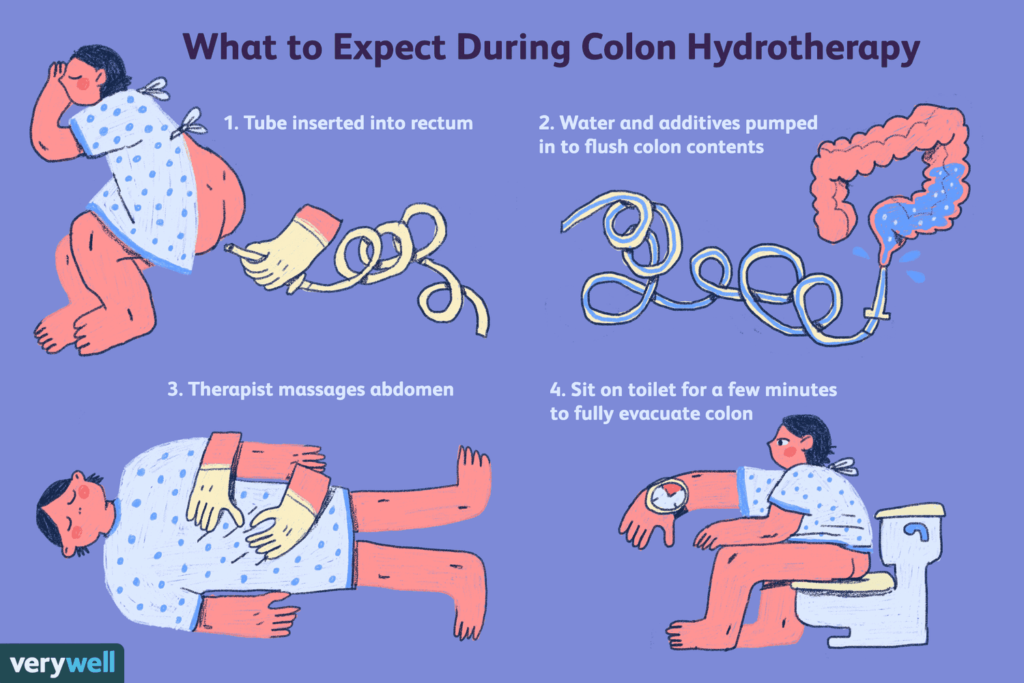
The Science Behind Colon Cleansing
Toxin Accumulation and Health Implications
The colon, or large intestine, is a vital part of the digestive system responsible for absorbing water and nutrients from digested food and processing waste for elimination. The theory behind colon cleansing suggests that stagnant waste can adhere to the colon walls, leading to toxin accumulation and absorption. These toxins are thought to affect bodily functions and contribute to symptoms such as fatigue, headache, weight gain, and low energy.
Impact on Gut Microbiota
Recent research has highlighted the importance of gut microbiota in overall health, influencing everything from metabolism to immune function and even mental health. The gut microbiome comprises a complex community of microorganisms that play a crucial role in digesting food and synthesizing certain vitamins. Colon cleansing is believed by some to help rebalance gut microbiota, promoting a healthier gut environment conducive to optimal function.
Detoxification Processes
The body naturally detoxifies itself through organs like the liver, kidneys, and even the colon itself. Advocates of colon cleansing argue that aiding this natural process through cleansing can enhance the body’s ability to eliminate toxins, improve nutrient absorption, and support overall digestive health. However, it’s important to note that scientific evidence supporting these claims is limited, and the body’s natural detoxification systems are highly efficient on their own.
Potential Benefits
Proponents of colon cleansing believe that it can offer several health benefits, including improved digestion, increased energy levels, weight loss, and reduced risk of colon cancer. While anecdotal evidence supports these benefits, scientific research in this area is sparse. Some studies suggest that certain colon cleansing methods, like colon hydrotherapy, can help improve symptoms of irritable bowel syndrome (IBS) and constipation.
Safety and Considerations
While colon cleansing can have potential health benefits, it’s not without risks. Procedures such as colon hydrotherapy should be performed by trained professionals to minimize risks such as infections, bowel perforations, and electrolyte imbalances. It’s crucial for individuals to consult with healthcare providers before undergoing any form of colon cleansing, especially those with pre-existing health conditions or concerns.
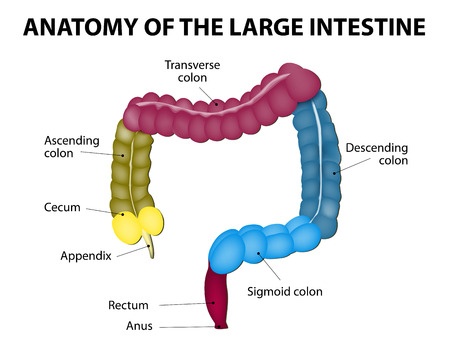
Preparing for Colon Cleansing
1. Consult with a Healthcare Professional
Before starting any colon cleansing regimen, it’s crucial to consult with a healthcare provider, especially if you have pre-existing health conditions or concerns. This step helps ensure that the cleansing method you’re considering is safe for your specific health situation.
2. Hydration
Increasing your water intake is vital in the days leading up to your colon cleanse. Hydration helps soften stool and supports the body’s natural detoxification processes. Aim for at least 8-10 glasses of water per day, and consider incorporating herbal teas that promote digestion and detoxification.
3. Diet Adjustments
Adjusting your diet can help prepare your digestive system for a cleanse and reduce potential discomfort. In the week leading up to your cleanse, focus on eating light, easily digestible foods such as fruits, vegetables, and whole grains. High-fiber foods can help naturally cleanse the colon by promoting bowel movements. It’s also advisable to reduce the intake of processed foods, dairy, red meat, and sugar, as these can inhibit the cleansing process.
4. Consider Probiotics
Incorporating probiotics into your diet before starting a colon cleanse can help support gut health by balancing the microbiome. Probiotics are available in supplement form or can be found in fermented foods like yogurt, kefir, sauerkraut, and kombucha.
5. Plan for Rest
Ensure you have time to rest during and immediately after the cleanse. Some people experience fatigue or mild discomfort as their body adjusts to the cleansing process. Planning for a period of rest can help manage these symptoms and allows your body to focus on the detoxification process.
6. Avoid Certain Substances
In the days leading up to your colon cleanse, it’s advisable to avoid alcohol, caffeine, and nicotine, as these substances can dehydrate the body and hinder the cleansing process. Reducing or eliminating these substances can also help prepare your body for the detoxification process and enhance the cleanse’s effectiveness.
7. Psychological Preparation
Preparing mentally for a colon cleanse is just as important as preparing physically. Understanding why you’re doing the cleanse and what to expect can help alleviate any anxiety or concerns. It’s also helpful to approach the cleanse with a positive mindset, focusing on the benefits you hope to achieve.
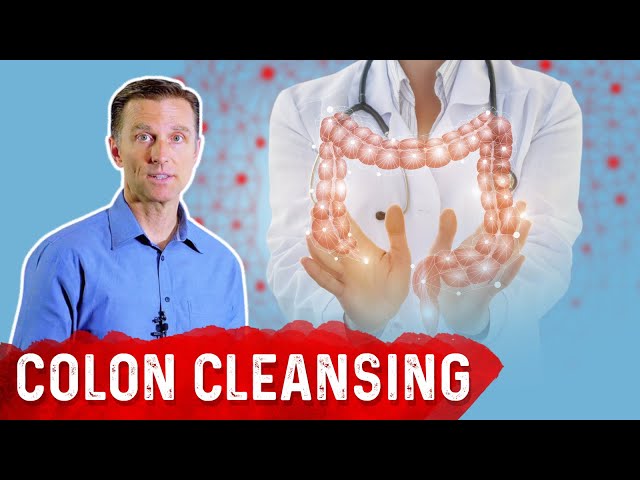
Different Methods of Colon Cleansing
1. Dietary Adjustments and Fiber Supplements
- Overview: Incorporating high-fiber foods and using fiber supplements are natural ways to cleanse the colon. Fiber helps increase stool bulk and promotes regular bowel movements, effectively cleansing the colon.
- Benefits: Enhances digestive health, improves regularity, and is gentle on the body.
- Considerations: It’s important to increase fiber intake gradually to prevent bloating and gas. Ensure adequate hydration when consuming high-fiber diets or supplements.
2. Herbal Teas
- Overview: Certain herbal teas are used for their laxative properties and ability to stimulate bowel movements. Common herbs include senna, psyllium, and dandelion.
- Benefits: Easy to use, natural, and can have additional health benefits such as liver support and detoxification.
- Considerations: Long-term use of laxative teas can lead to dependency and disrupt natural bowel function. It’s crucial to use them as directed and not exceed recommended durations.
3. Water Flushes
- Overview: Also known as a water cleanse, this method involves drinking large volumes of water at specific times to flush the colon. Sometimes, saltwater flushes are used for a more intense cleanse.
- Benefits: Hydrates the body and can help quickly clear the colon.
- Considerations: Overconsumption of water in a short period can lead to electrolyte imbalances. Saltwater flushes should be approached with caution, especially for individuals with hypertension or kidney issues.
4. Over-the-Counter Cleanses
- Overview: There are various over-the-counter colon cleansing products, including capsules, powders, and teas, formulated to support detoxification and bowel movements.
- Benefits: Convenient and formulated to provide a comprehensive cleanse.
- Considerations: It’s essential to research products and choose those with natural ingredients and minimal side effects. Some products may cause cramping or irregular bowel movements.
5. Enemas
- Overview: Enemas involve introducing liquid into the colon through the rectum to stimulate a bowel movement. Types of enemas include water enemas, coffee enemas, and others with specific solutions.
- Benefits: Can provide immediate relief from constipation and clear the lower colon.
- Considerations: Frequent use of enemas can disrupt the natural flora of the gut and lead to dependency. It’s recommended to use them sparingly and under guidance if needed.
6. Colon Hydrotherapy (Colonic Irrigation)
- Overview: Performed by a trained therapist, colon hydrotherapy involves flushing the colon with filtered water through a tube inserted into the rectum. The process helps remove waste and can stimulate bowel muscle contraction.
- Benefits: Offers a thorough cleanse of the entire colon and can be tailored to the individual’s needs by a professional.
- Considerations: It’s crucial to choose a reputable practitioner. The procedure has potential risks, such as bowel perforations and infections, if not performed correctly.
Step-by-Step Guide to Colon Cleansing
Step 1: Determine Your Needs
- Assess your health goals: Are you looking to relieve constipation, improve digestion, detoxify, or perhaps support weight loss?
- Consider your health condition: Consult with a healthcare provider, especially if you have any underlying health issues or are taking medication.
Step 2: Choose the Right Method
- Research and compare: Familiarize yourself with the different methods of colon cleansing mentioned previously (dietary adjustments, herbal teas, water flushes, over-the-counter cleanses, enemas, and colon hydrotherapy).
- Select a method: Choose one that aligns with your health goals, lifestyle, and any medical advice received.
Step 3: Prepare Your Body
- Diet adjustment: Gradually increase your intake of high-fiber foods and reduce processed foods, sugars, and fats.
- Hydration: Drink plenty of water to aid the cleansing process and prevent dehydration.
- Probiotics: Consider taking probiotic supplements or eating probiotic-rich foods to support gut health.
Step 4: Begin the Colon Cleanse
- Follow instructions carefully: If you’re using an over-the-counter product or herbal remedy, adhere strictly to the guidelines provided.
- Stay hydrated: Continue to drink water throughout the day to support the detoxification process and maintain hydration.
- Listen to your body: Pay attention to how your body responds to the cleanse. Mild discomfort is normal, but severe pain or distress is not.
Step 5: Monitor Your Experience
- Keep a journal: Documenting your experiences can help you monitor progress and identify any adverse reactions.
- Adjust as needed: If you experience undue discomfort or no improvement, reassess your method and consider trying a different approach or discontinuing.
Step 6: Conclude the Cleanse
- Gradually return to a normal diet: After completing the cleanse, slowly reintroduce other foods into your diet, starting with light, easily digestible foods.
- Evaluate the experience: Reflect on how the cleanse went, how you feel, and whether you achieved your health goals.
Step 7: Maintain Colon Health
- Regularly incorporate high-fiber foods: Maintain a diet rich in fruits, vegetables, whole grains, and water.
- Consider regular cleansing: Depending on your experience and health goals, you might find periodic colon cleansing beneficial. However, avoid overdoing it to prevent dependency.
Step 8: Follow-Up Care
- Post-cleanse care: Continue with probiotics and a healthy diet to support gut health.
- Consultation: If you underwent a professional procedure like colon hydrotherapy, a follow-up with the practitioner might be recommended.
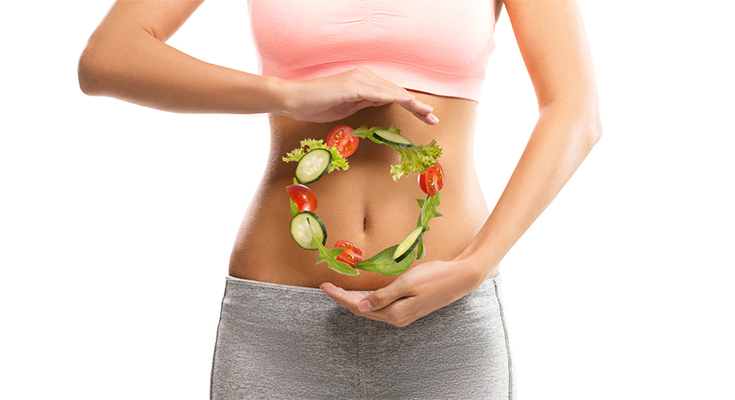
Common Mistakes to Avoid
1. Not Consulting a Healthcare Professional
- Mistake: Undertaking a colon cleanse without consulting a healthcare professional, especially if you have existing health conditions or are taking medication.
- Why to Avoid: A healthcare professional can provide personalized advice and ensure that the cleanse won’t interfere with your health or medications.
2. Overuse and Dependency
- Mistake: Frequently resorting to colon cleansing, leading to overuse and potential dependency on certain methods, such as laxatives or enemas.
- Why to Avoid: Overuse can disrupt the natural bowel function and flora, leading to long-term digestive issues.
3. Ignoring Pre-Cleanse Preparation
- Mistake: Skipping the preparation phase, which includes dietary adjustments and hydration.
- Why to Avoid: Proper preparation can reduce potential discomfort and enhance the effectiveness of the cleanse.
4. Insufficient Hydration
- Mistake: Not drinking enough water before, during, and after the cleanse.
- Why to Avoid: Adequate hydration is crucial for helping to flush toxins from the body and prevent dehydration.
5. Poor Diet Post-Cleanse
- Mistake: Immediately returning to a poor diet after completing a colon cleanse.
- Why to Avoid: Consuming processed foods, high sugars, and fats right after a cleanse can negate the benefits and contribute to the reaccumulation of toxins.
6. Unrealistic Expectations
- Mistake: Expecting instant or dramatic health improvements without making other lifestyle changes.
- Why to Avoid: Colon cleansing is just one aspect of a holistic approach to health. Sustainable health improvements typically require broader lifestyle changes.
7. Choosing the Wrong Cleansing Method
- Mistake: Selecting a colon cleansing method that is not suited to your individual health needs or lifestyle.
- Why to Avoid: The wrong method can lead to discomfort, lack of results, or adverse health effects.
8. Ignoring the Body’s Signals
- Mistake: Continuing with the cleanse despite experiencing severe discomfort or adverse reactions.
- Why to Avoid: While some discomfort may be normal, severe pain or symptoms could indicate a problem. It’s important to listen to your body and stop the cleanse if necessary.
The Impact of Colon Cleansing on Overall Health
Potential Benefits
1. Improved Digestive Function
- Colon cleansing can help clear the colon of accumulated waste, which may improve bowel regularity and prevent constipation. This can lead to better digestion and absorption of nutrients.
2. Increased Energy and Concentration
- Accumulation of toxins in the body can affect energy levels and mental clarity. By removing these toxins, colon cleansing might lead to increased energy and improved concentration.
3. Weight Loss
- Initial weight loss may occur, primarily due to the removal of waste material from the digestive tract. Additionally, the process can kick-start a more mindful approach to eating and a healthier diet, contributing to further weight management.
4. Reduction in Bloating
- By removing waste and improving digestion, colon cleansing can reduce gas and bloating, leading to a more comfortable and flatter abdomen.
5. Enhanced Detoxification
- Supporting the body’s natural detoxification processes, colon cleansing can help reduce the burden on the liver and kidneys, potentially leading to improved overall health.
Considerations and Cautions
While the benefits of colon cleansing can be appealing, it’s important to approach it with caution and awareness of potential risks:
1. Disturbance of Gut Microflora
- The colon hosts a complex community of bacteria that play a crucial role in health and digestion. Some cleansing methods may disrupt this balance, leading to issues such as diarrhea or infections.
2. Risk of Dehydration
- Especially with methods that involve laxatives or enemas, there is a risk of dehydration and electrolyte imbalance. It’s crucial to stay well-hydrated and monitor for signs of dehydration.
3. Dependency
- Regular use of laxatives or other cleansing methods can lead to dependency, where the colon no longer functions properly without them. This can exacerbate long-term digestive issues.
4. Potential for Harm
- In rare cases, colon cleansing can cause adverse effects such as perforations in the colon wall, infections, or kidney damage. These risks are particularly associated with procedures like colon hydrotherapy if not performed correctly.
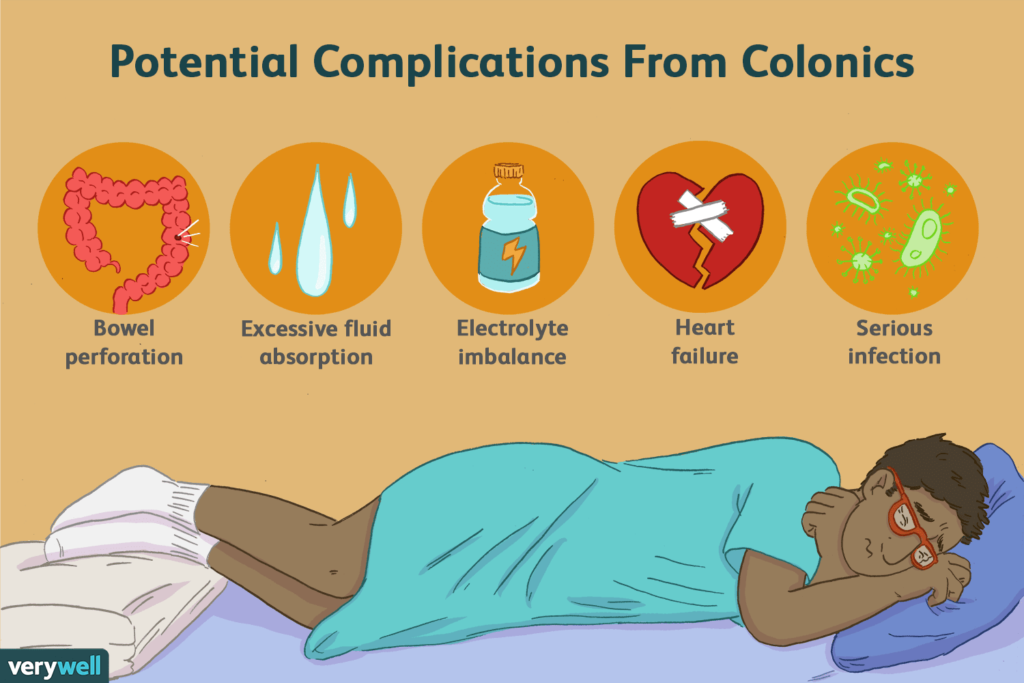
Conclusion
Colon cleansing is a valuable practice for those looking to improve their digestive health and enhance their overall quality of life. By understanding the different methods, preparing adequately, and following a thoughtful approach, you can safely and effectively cleanse your colon. Remember, the key to a successful cleanse is to listen to your body and choose a method that suits you best.
FAQs
- How often should I cleanse my colon?
- Can colon cleansing help with weight loss?
- Are there any risks associated with colon cleansing?
- How can I maintain gut health after a colon cleanse?
- What are the signs that I might need a colon cleanse?


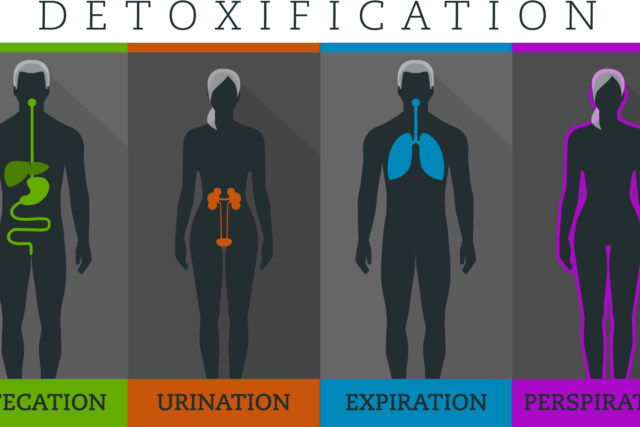
MOST COMMENTED
Animal-Based Proteins / Casein Protein / Dietary Protein / High-Protein Diets / Pea Protein / Plant-Based Proteins / Protein / Protein Deficiency / Protein Supplements / Proteins / Whey Protein / Whey Proteins
Is Protein Powder Safe for Teenagers and Children?
Animal-Based Proteins / Casein Protein / Dietary Protein / High-Protein Diets / Pea Protein / Plant-Based Proteins / Protein / Protein Deficiency / Protein Supplements / Proteins / Whey Protein / Whey Proteins
Unlock the Power of Proteins for Optimal Gut Health
Multivitamin
Total Health: Multivitamin for Active Lifestyles
Multivitamin
WellnessFusion: Complete Multivitamin Support
Dietary Supplement
Revitalize Your Health: The Magic of Red Yeast Rice Capsules
Foot care / Foot Health
Revitalize Your Foot Care Routine: Essential Tips for Optimal Foot Health
Foot Problem / Diabetics / Foot Health
Diabetics: Mastering Footwear Selection for Enhanced Foot Health and Ultimate Comfort
Exercises and Footwear Tips for Hammertoe Relief / Foot care / Foot Health / Foot Pain / Foot Problem / Hammertoes
Unlock Effective Exercises and Footwear Tips for Hammertoe Relief
Hammertoes / Foot Health / Foot Pain / Foot Problem
Unlock Relief: Essential Guide to Hammertoes Causes, Symptoms, and Treatments
Foot Problem / Foot Health
Revolutionize Your Recovery: Natural Remedies for Plantar Fasciitis – Fresh Home Keepers